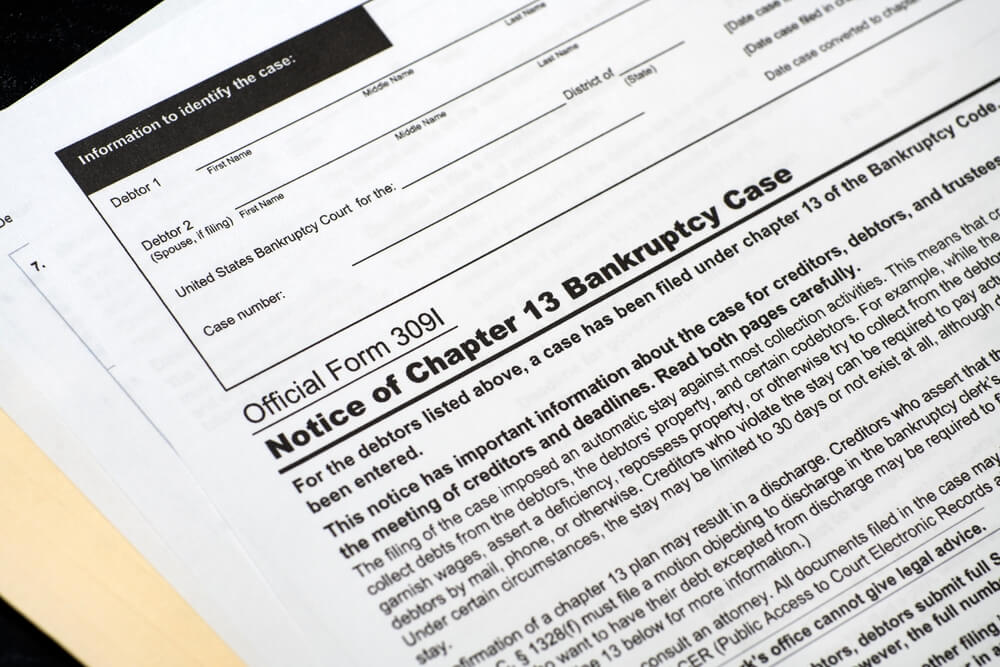
As Florida and the country move forward from the COVID-19 pandemic and its economic impact, many homeowners continue to struggle with making their mortgage payments.
Some of those whose financial hardships have made it impossible for them to make on-time mortgage payments have eased the burden by arranging mortgage forbearance on conventional, FHA, VA, and USDA loans, as well as from some private lenders.
What is mortgage loan forbearance? It is an agreement between a borrower and their bank or mortgage servicer to temporarily pause or reduce their monthly mortgage payments. This is helpful, but when the forbearance period ends, many loan holders require the homeowner to immediately make up for all missed mortgage payments. This is typically a high bar for borrowers who missed several payments prior to forbearance, leaving them in the same deep financial hole that overwhelmed them before.
A homeowner stuck in this position might consider a Chapter 13 bankruptcy. This “reorganization” bankruptcy allows the debtor to craft a plan to repay their debts over several years, which should provide a manageable pace for them to catch up on their missed mortgage payments and other debts.
Can a Chapter 13 bankruptcy work to your advantage as you emerge from mortgage forbearance? What happens to a mortgage when filing bankruptcies, and how does a mortgage forbearance affect your finances? In South Florida, the Loan Lawyers can help you find the right path forward after a mortgage forbearance. Our Fort Lauderdale forbearance lawyers employ a unique and multifaceted approach to debt solutions, which has helped over 10,000 hardworking clients overcome debt and restore their financial stability.
If you have fallen behind on your mortgage payments and gone through mortgage forbearance, you have rights and legal protections to help keep you in your home. Contact Loan Lawyers for clear answers to your questions and solutions to your financial problems. Call today for your fee, no-obligation consultation to learn how we can help you avoid foreclosure.
What Happens to Your Mortgage When Filing Bankruptcies?
Homeowners do not have to fear losing their homes when filing for or managing the impact of bankruptcy in Florida. In fact, any efforts to foreclose on your home are immediately suspended when you file a bankruptcy petition.
When filing a Chapter 13 bankruptcy, the individual consolidates their debt in a three- to five-year repayment plan approved by the court. Then, they make a single monthly payment to a trustee who distributes portions of it to creditors, including the institution holding their mortgage.
Under a Chapter 13 bankruptcy plan, the debtor must make mortgage payments in full and on time. However, mortgage payments that have been missed, including those prior to a forbearance, become a portion of up to 60 monthly consolidated debt payments.
Most individuals file for bankruptcy under Chapter 13 when they do not qualify under the Chapter 7 bankruptcy means test.
However, even in most Chapter 7 “liquidation” bankruptcies, the debtor’s home is exempted from sale under Florida’s homestead exemption. This requires that the property not be larger than a half-acre in a municipality or 160 acres in an unincorporated area. The individual must also have owned the property (had a mortgage) for 1,215 days (3.32 years) before they filed for bankruptcy.
Mortgage Forbearance and Bankruptcy: How They Interact
A mortgage forbearance lets you stop or reduce your monthly mortgage payments for three to six months, but it doesn’t eliminate the past-due portion of the loan balance.
At the end of a forbearance, all missed mortgage payments become due. However, filing Chapter 13 bankruptcy offers a way to catch up on missed payments through a repayment plan, which can help you spread out payments and retain your home.
About a month before a mortgage forbearance ends, the homeowner should start to consider their options if they want to keep their home.
Reaffirmation vs. Surrendering a Mortgage in Bankruptcy
A homeowner who wants to keep their home during bankruptcy may include it in the bankruptcy or reaffirm their existing mortgage to exclude that debt from the bankruptcy process.
Reaffirmation is an agreement between the borrower and the lender that the borrower’s obligations under the existing mortgage continue, and they will continue to make regular payments on the loan outside of the bankruptcy process. In some cases, the borrower might negotiate better terms on the loan.
In some bankruptcy cases, surrendering (giving up) a mortgage may be the right move. If you truly cannot afford your mortgage but can make other housing arrangements, you can walk away from your home and the loan and no longer be personally liable for that debt.
Will Bankruptcy Lower My Mortgage Payment?
Under the repayment plan developed for a Chapter 13 bankruptcy, the debtor makes fixed payments to the trustee, who then distributes those funds to creditors according to the terms of the plan. Repayment plans lump creditors’ claims into three categories: priority, secured, and unsecured. A mortgage is a secured loan, meaning there is collateral (the home), which the creditor may seize if the loan isn’t paid.
A repayment plan must provide full payment of secured debts, such as mortgages. Payments to secured creditors may be made on the original repayment schedule if any money already owed (known as “arrearage”) is satisfied during the plan.
However, you also have the opportunity during a Chapter 13 bankruptcy to negotiate with your lender about the terms of your mortgage. This could lead to refinancing and a lower interest rate or a longer loan term, either of which could lead to a monthly payment reduction.
When to Hire a Forbearance or Bankruptcy Lawyer in Florida
You have multiple options if you are struggling and cannot make payments on your home mortgage in Florida. Forbearance plans are great for many homeowners in your situation. After a forbearance ends, bankruptcy may be appropriate for retaining your home.
Another option, if you are back on your feet but have a high interest rate, is to seek loan modification or possibly still file a Chapter 13 bankruptcy and enter the Mortgage Mediation Modification Program available through the U.S. Bankruptcy Court for the Southern, Middle, and Northern Districts of Florida.
There are many paths a homeowner may take and every case is different. Choosing and then navigating the correct option is a daunting task for most people. Working with an experienced South Florida law firm experienced with bankruptcies, loan modification negotiations and foreclosure defense can help you determine the best option for you.
At Loan Lawyers, we can help you take advantage of all the relief available to you under Florida and federal law, including obtaining a mortgage loan forbearance followed by Chapter 13 bankruptcy if that’s the correct step for you.
Call Today for Help with Your Mortgage and Bankruptcy
If you are among the many people in Florida who need help saving their homes from mortgage foreclosure, the Loan Lawyers in Fort Lauderdale, FL, is here for you. We can walk you through your options in a FREE legal consultation with one of our forbearance and bankruptcy lawyers and take care of all the legal legwork necessary with the goal of getting you back on your financial feet.
Contact us today to learn about your rights and options for keeping your home. We provide total debt solutions so good people like you don’t have to let debt or foreclosure ruin their lives. Call now!





















